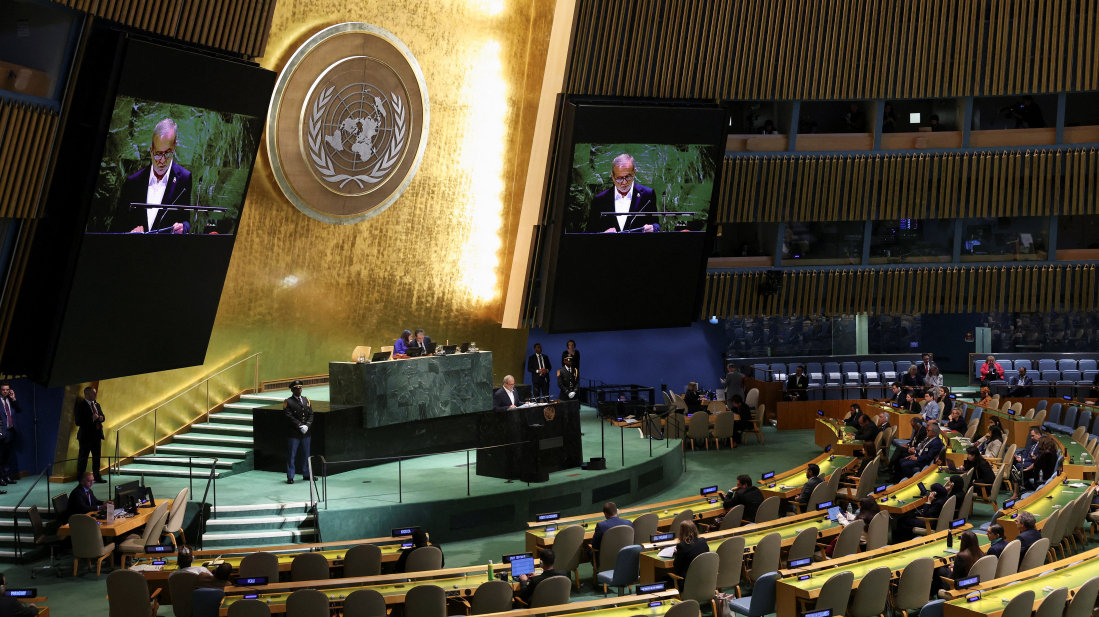UN reports 13 civilians killed in Pakistani airstrikes in eastern Afghanistan
The United Nations mission in Afghanistan said on Monday it had received “credible reports” that at least 13 civilians were killed and seven other...

United Nations sanctions are set to be reimposed on Iran later Saturday under the “snapback” mechanism, a move Tehran says will be met with harsh retaliation. The step comes amid accusations Iran violated the 2015 nuclear deal, and echoes a deteriorating diplomatic standoff.
Efforts to delay reinstating all UN sanctions failed after a resolution by Russia and China to push back enforcement did not secure sufficient backing in the Security Council. As a result, the snapback is scheduled to take effect at 00:00 GMT on Sunday.
The snapback process was triggered 30 days ago by Britain, France and Germany (the “E3”), who accused Iran of breaching commitments under the 2015 deal, notably in areas like uranium enrichment and inspector access.
Iran denies seeking a nuclear weapon, and has called the move unlawful.
In response, Iran has recalled its ambassadors in Britain, France and Germany for consultations, escalating the diplomatic tit-for-tat. Meanwhile, President Masoud Pezeshkian downplayed alarm, saying, “It is not like the sky is falling.”
The sanctions to be reimposed include an arms embargo, bans on uranium enrichment and reprocessing, restrictions on ballistic missile-related activity, travel bans and asset freezes on designated persons and entities, and authorisation for seizure of prohibited material. Iran’s rial currency slid further, hitting a new record low as markets reacted to the looming return of sanctions.
Analysts warn the renewed sanctions may worsen Iran’s economic crisis, disrupt trade, limit access to banking and technology sectors, and hamper any remaining avenues for diplomatic engagement.
A seven-month-old Japanese macaque has drawn international attention after forming an unusual bond with a stuffed orangutan toy after being rejected by its mother.
Pakistan said it carried out cross-border strikes on militant targets inside Afghanistan after blaming a series of recent suicide bombings, including attacks during the holy month of Ramadan, on fighters it said were operating from Afghan territory.
Italy said a fond farewell to the Winter Olympics on Sunday with an open-air ceremony in the ancient Verona Arena that celebrated art and sporting achievement at a Games lauded as a model for how to stage such events.
Ukraine’s President Volodymyr Zelenskyy has approved new sanctions targeting Russian maritime operators, defence-linked companies and individuals connected to Moscow’s military and energy sectors, according to official decrees issued on Saturday.
The chief executive of Google DeepMind, Demis Hassabis, has called for more urgent research into the risks posed by artificial intelligence, warning that stronger safeguards are needed as systems become more advanced.
A powerful winter storm has brought large parts of the U.S. Northeast to a standstill, dumping more than a foot of snow across several states and severely disrupting transport and daily life.
The United Nations mission in Afghanistan said on Monday it had received “credible reports” that at least 13 civilians were killed and seven others injured in overnight Pakistani airstrikes inside Afghanistan.
The former British ambassador to the U.S. Peter Mandelson has been arrested by police in London on suspicion of misconduct in public office.
At least 25 members of Mexico's National Guard have died during a wave of violence in the state of Jalisco after the killing of a drug lord, the country's security minister has said.
The European Parliament on Monday (23 February) postponed a vote on the EU’s trade deal with the U.S. after President Donald Trump imposed a blanket 15% import duty.
You can download the AnewZ application from Play Store and the App Store.

What is your opinion on this topic?
Leave the first comment